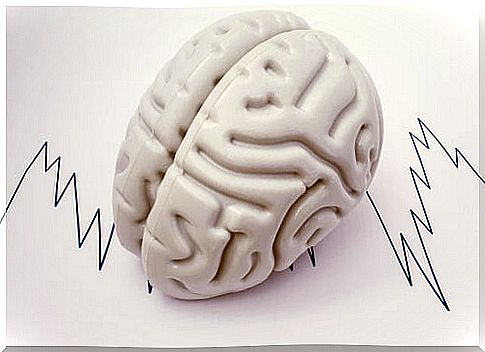Changes At The Brain Level Due To Sedentary Lifestyle
To know if there are changes at the brain level due to sedentary lifestyle, we must first know what sedentary lifestyle is. Sedentary lifestyle is a way of life of people who hardly do physical exercise.
According to the World Health Organization (WHO), physical inactivity and sedentary lifestyle are important risk factors for mortality worldwide. They increase the risk of suffering from non-communicable diseases, such as cardiovascular disease, diabetes or cancer.
It has been estimated that one in four adults in the world does not have a sufficient level of physical activity. Likewise, at least 60% of the population does not perform physical activity to obtain benefits for their health.
There are several studies that affirm that doing physical exercise produces positive changes in the brain in the short and long term. But, on the contrary, can physical inactivity cause changes at the brain level? All the answers to your questions you will find in this space.
What changes are produced at the brain level by sedentary lifestyle?
Until two decades ago, many scientists believed that the structure of the brain was molded in adulthood and that it was not possible to create new brain cells or alter the structure of those that already existed. Now, exercise has been shown to shape the brain by stimulating the creation of new cells.
Exercise is one of the most brain-changing factors. Lack of activity can also cause changes, but in this case the reverse. Sitting for many hours causes a thinning of the temporal median lobe, an area of our brain related to the formation of memory.
Our brain has multiple connections to control all the vital functions of the body. These are, for example, breathing, blood pressure, memory, heart function and many other activities that are performed unconsciously.
If we develop a sedentary lifestyle, changes can occur in the neural structures that are part of these connections. For this reason, physical inactivity has a negative influence on our health.
The example that made us understand the changes at the brain level due to sedentary lifestyle
This was recently verified in a study conducted by the Wayne State University School of Psychology, which made observations of brain activity on sedentary rats and physically active rats.
After 3 months, the sedentary rats had more ramifications than usual in neurons that control breathing, blood pressure, and many more functions that we perform unconsciously. This part of the brain is closely related to the development of heart disease and hypertension.
To be better understood, in the brain of sedentary people there is hyperactivity in the area that controls vital functions compared to people who exercise, who maintain the same number of branches in that area.
For this reason, in the brain of sedentary people, the area related to the development of heart disease and hypertension is more activated. Therefore, they are at higher risk of suffering from these diseases.
So what does a sedentary lifestyle mean for our brain health?

In the long term, it can also lead to multiple cognitive impairment problems, such as dementias. This is because many of the neural connections occur in the brain’s white matter.
The white matter is responsible for communicating between different parts of our nervous system. If their workload is increased, the time will come when our cells become saturated and lose activity or die.
The aforementioned case of rats can be applied to all cells in our body. The inactivity of some cells means that other cells in our body have to work more, even to the point of being exhausted.
There must be an intermediate point, in which our entire body collaborates in the correct functioning of the vital functions that allow us to be healthy and alive.
Finally, as we have mentioned before, a sedentary lifestyle can be related to a deterioration of the cerebral nerve fibers. This is because our body does not expend energy externally and increases the workload of our brain cells.
Thus, this can cause that, in the short term, we may suffer problems such as:
- Depression.
- Stress.
- Anxiety.
- Headache.
- General tiredness
- Concentration problems.
- Decreased performance.
- Low self – esteem.
In conclusion
It is important to maintain habits of daily physical exercise to improve our health, both physical and psychological. In this way, we will be able to stay healthy in all aspects of our life.









